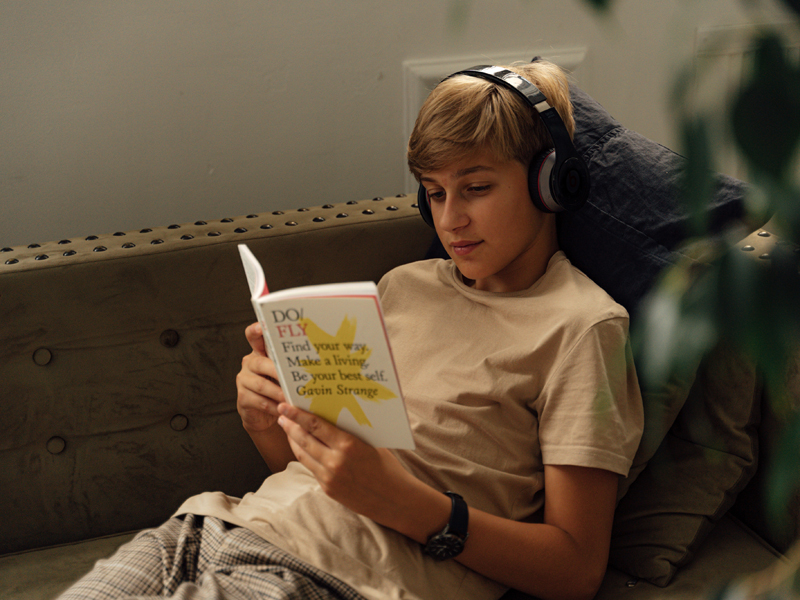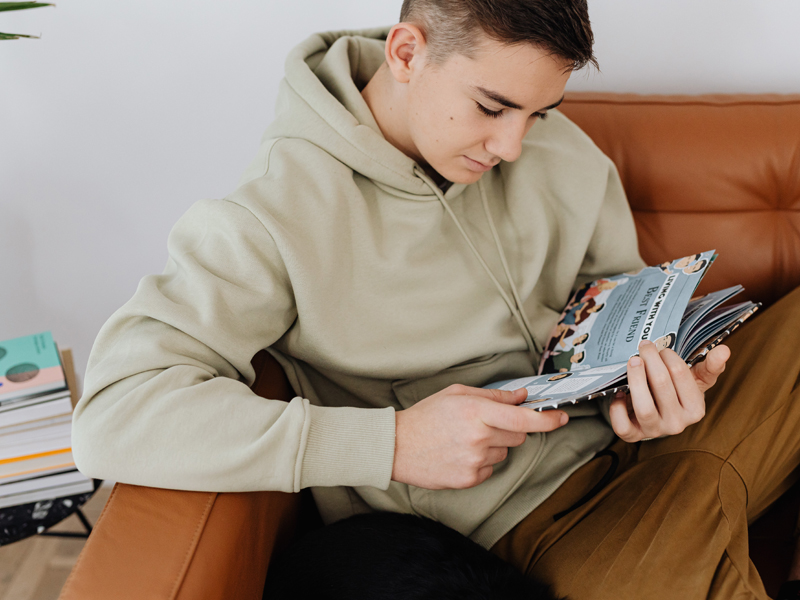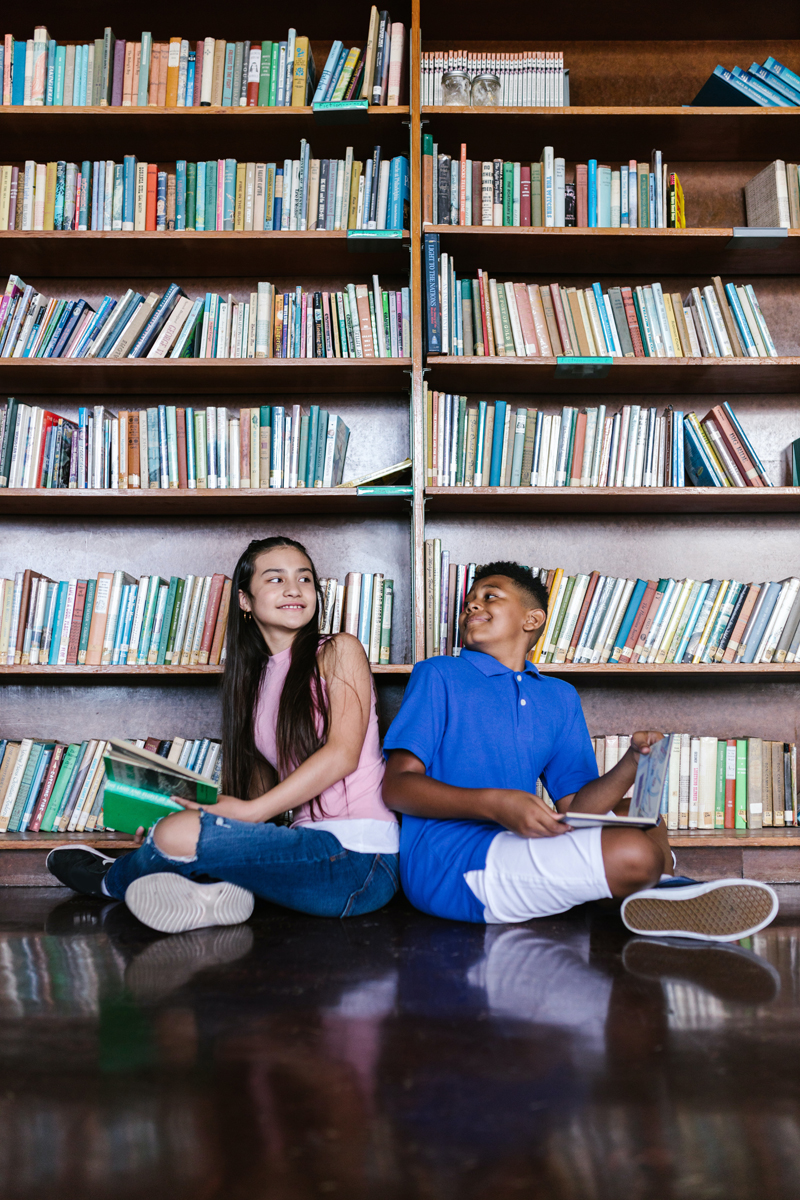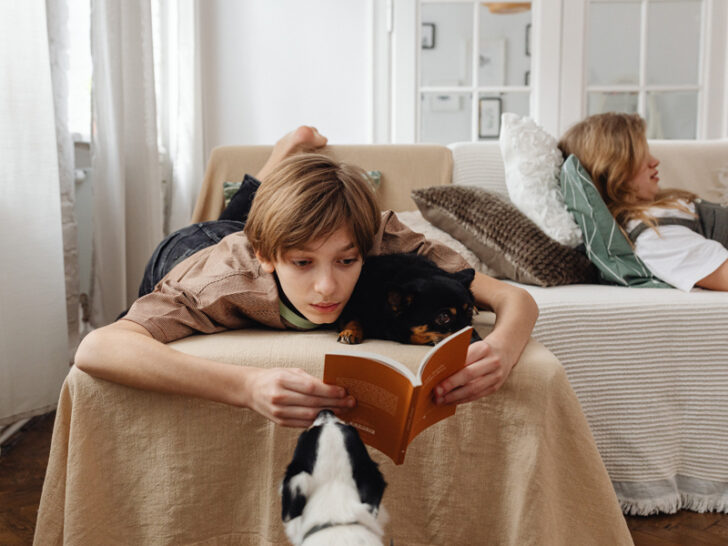To close the gender performance gap and enhance the performance of boys, we need to get boys reading for fun.
Young people need strong reading skills to learn and demonstrate their learning. Reading skills are not just about performing well in subjects such as English. They are also related to performance in subjects like science and maths.
When it comes to reading, girls typically do better than boys. This was highlighted by the recently released results of a major international test on reading skills.
The Progress in International Reading Literacy Study (PIRLS) test, found Australian girls in Year 4 scored on average 17 points higher than Australian boys in the same year.
There was also a gap in terms of attitudes to reading. While more than a third of Australian girls “very much like reading” according to the PIRLS study, less than a quarter of boys feel the same.

Attitudes toward reading matter
Research consistently makes a link between students’ reading skills and their attitudes toward reading. If students are more motivated to read, they read more often and build their reading comprehension skills and vocabulary.
According to Australian Bureau of Statistics data released last month, girls (aged five to 14 years) are also more likely than boys to read for pleasure (77% compared with 68%).
To close the gender performance gap and enhance the performance of boys, we need to get boys reading for fun.
This might help: 21 books turned into kids’ movies that will inspire non-readers
Why is there an attitude gap?
One reason is boys and girls are brought up differently when it comes to reading.
A 2016 study of Canadian, US and UK parents found they spend more time reading with pre-school daughters than sons. So, while we teach young girls to see themselves as lifelong readers, many boys miss out.
Then as children move into primary school, even though boys read less often, they also receive less parental encouragement to read than girls.
Some boys think that reading is no longer important for them once they know how to do it.
What can we do?
Parents, guardians and relatives can play an important role in helping boys see themselves as readers, but once boys can read on their own, this role can be unclear.
Like any skill, sustained reading experiences are needed for reading skills to be both maintained and developed.
We cannot assume boys have opportunities for sustained reading for pleasure at school, as even when silent reading is timetabled in the school day.

Ten tips to get boys reading for pleasure
Here are some steps you can take to encourage the boys in your life to read, and improve their attitudes toward reading.
1. Encourage boys to use the local library
Joint library visits can encourage children to read more often, and as children move through the years of schooling, boys are less likely than girls to visit the library in their free time.
2. Encourage reading
Make sure your child knows reading is still important even after they can do it by themselves. Keep up the encouragement, and encourage boys as well as girls.
3. Keep reading together
Don’t stop reading aloud just because he can read by himself. Opportunities to read with parents can lead boys to have a positive attitude toward reading, and value shared time spent reading together.
4. Talk about books and share book recommendations
Keeping reading for pleasure in focus rather than reading for testing. Some children begin to see reading is something purely done for testing, making reading seem like a chore.

5. Show them you read for fun
The PIRLS report also found a positive link between parents liking books and their child’s reading achievement. So, show your children you read and read for fun.
6. Encourage holiday reading
Encourage boys to read during the school holidays. During these times, children’s reading skills may decline as they are not being sustained and developed.
Try some of these books:
- 16 awesome book series for reluctant readers of all ages
- 9 books I would give my little brother for Christmas
- 21 awesome books for reluctant readers (they won’t be able to resist)
7. Go to the experts
Not sure what your child might like to read? Ask the teacher librarians at your school. They are experts at connecting struggling and disengaged readers with books that meet their interest and ability levels.
8. Fiction and non-fiction are both great
The stereotype that all boys prefer to read non-fiction is not true. Fiction books offer literacy benefits as well as building social skills such as empathy.
That being said, non-fiction is great, too. Reading non-fiction books for pleasure was also recently linked with “high reading performance, especially among the male students”.
9. Dads especially need to read
Fathers and male influences need to play a greater role in encouraging boys to read. While 49% of teens felt their mother encouraged them to read, only 25% of fathers were playing this role.
10. Have lots of books around the house
Having a home with many books (more than 200) is related to reading achievement, and access to books in the home is linked to improved attitudes toward and frequency of reading, particularly in boys.

It’s not ‘just boys’
Finally, it’s important to note while the gender gap in performance and attitudes exists, there are also many girls who are disengaged from reading. More than one in five Australian girls do not like reading. There are also other concerning gaps that deserve our attention related to First Nations background, geographic location and socioeconomic status.
More on this: 3 tips to get girls reading books again
We should encourage all children to regularly read for pleasure so that they can build the strong literacy skills needed to understand and critically evaluate the large volumes of written material they will encounter in their lives today and in the future.![]()
Margaret Kristin Merga, Honorary Senior Lecturer, School of Education, University of Newcastle. This article is republished from The Conversation under a Creative Commons license. Read the original article.
Feature image by Karolina Grabowska; boy with headphones by Antoni Shkraba; blue book and boy reading by Karolina Grabowska; book stacks Photo by RDNE Stock project

